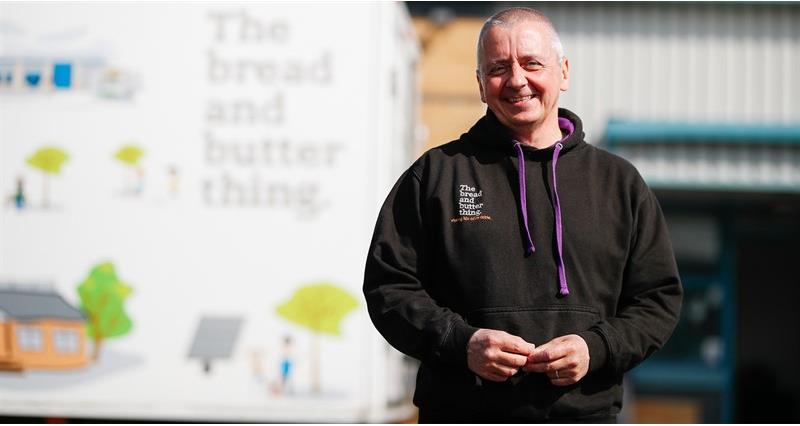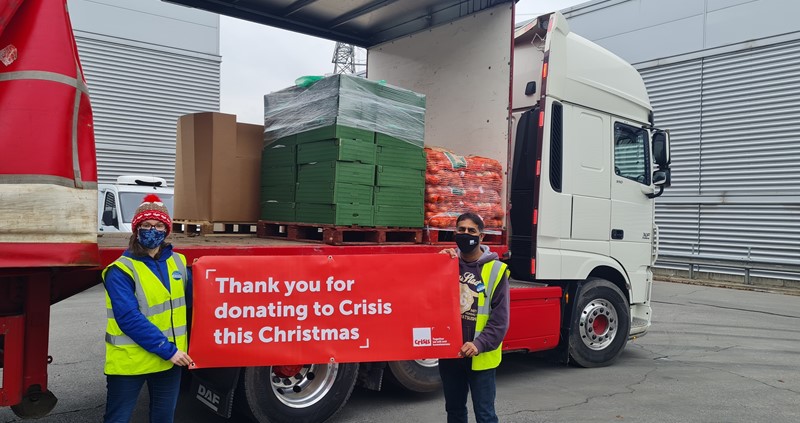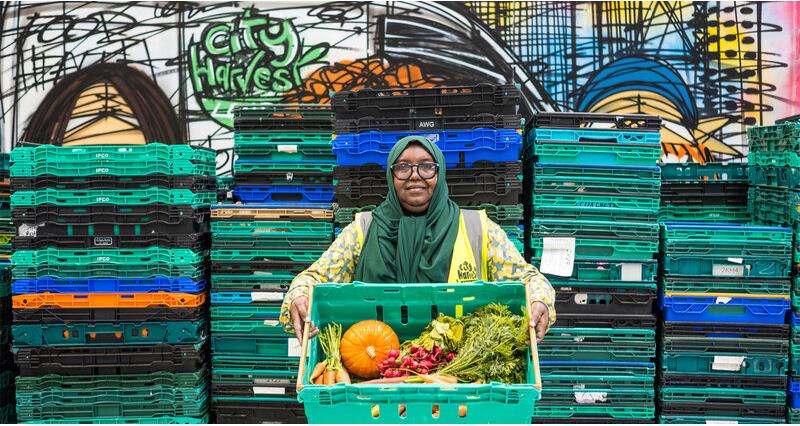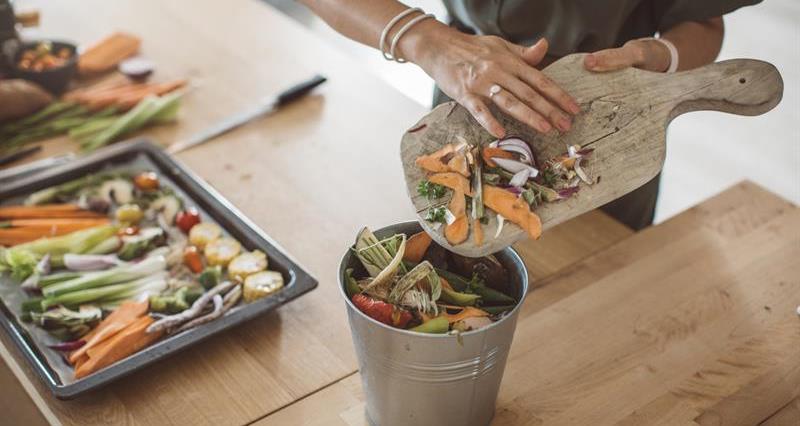The Bread and Butter Thing operates a network of 111 food hubs across England, delivering affordable, nutritious food to close to 60,000 families in need.
Using the Index of Multiple Deprivation map (IMD), hubs are located in deprived areas and work in partnership with community projects already in place to help build relationships and community resilience.
Communities are then able access to nutritious food in the form of a low cost weekly shop. Refrigerated box vans go out into the community once a week and offer 3 bags of food: 1 bag of fruit and vegetables, 1 bag of cupboard goods, and 1 bag of chilled goods, at a cost of £8.50, saving families around £25-30 per shop.
“We scrutinise the area rather than the individual,” explained The Bread and Butter Thing CEO Mark Game. “People in low-income families are fed up of having to demonstrate they have difficulties with income. It’s a demoralising process which doesn’t need to be done.
“If we go into an area that’s already struggling to get by then we’ll just support everyone in that area. We don't means test.”
Mark has led the way with social food redistribution, having brought the first social supermarket to the UK in 2013.
“If we go into an area that’s already struggling to get by then we’ll just support everyone in that area. We don't means test.”
The Bread and Butter Thing CEO Mark Game
“I spent 12 months working with foodbanks and other community organisations to throw this together – it started with me and a hire van then Morrisons very kindly funded our first two vans.”
Since then, The Bread and Butter Thing now serves around 6000 families per week.
Working with growers
The charity mostly handles food surplus, working with distribution centres, manufacturers and also directly collecting surplus donated from farms to redistribute food back into local communities.
“We are a business to consumer organisation and I think we’re unique in this position. We take directly from fields and go directly to the family members who would consume that food,” said Mark.
During 2021, The Bread and Butter Thing began working with international fruit marketing and distribution company Worldwide Fruit to communicate with growers to redistribute surplus fruit on farms.
Worldwide Fruit worked with WRAP to implement a ‘Target, Measure & Act’ for in-field surplus, to work out where surplus was coming from across farms and varieties. This opened opportunities to understand how surplus can be managed and how work with charities can help growers to pick lower grade fruit and distribute it at no extra cost.
Since partnering, Worldwide Fruit is continuing to search for opportunities to reduce waste of edible food surplus and saw an opportunity with one of its key suppliers, Kent-based family farming business, Chandler & Dunn.
Andy Mitchell, senior technical manager at Worldwide Fruits said: “We’re working closely with all our suppliers to ensure that we do everything we can to minimise the waste of our edible surplus. None of our growers want to see their crops wasted and no-one sets out to grow food that won’t be eaten.”
In 2021, the first pick of surplus fruit at Chandler & Dunn was completed, with 23.5 pallets collected, equating to 160,000 pieces of fruit. In 2022, the volume of fruit picked rose to 60 pallets. More fruit could be picked in 2022 due to an overall increase in operation efficiency. Instead of picking surplus fruit after the main crop, pickers were sorting the surplus simultaneously.
“The crux of it for me when working with farmers is just to make it really easy for them,” said Mark. “In the case of Worldwide Fruit and Chandler & Dunn it was very simply that they needed to de-hire. Because we’re business to consumer, we are uniquely placed to keep those eps trays in that ecosystem. We’re happy for people to de-hire assets to us. We will also provide the logistics to uplift that produce so it’s cost-neutral too. All you have to do is tell us what you’ve got in what assets, where it is and when and we’ll pick it up – it’s that easy.”
Did you know...?
Food waste and surplus can be found at every stage along the supply chain. Food surplus is different from waste because food surplus occurs when availability exceeds demand, whereas food waste is simply food that is discarded.
Redistributing food surplus can have agronomic benefits, for example, lowering pest and disease pressure through removing fruit that would otherwise rot in the orchards.
Cost neutral solutions
“I think there’s something really emotional about it,” Mark reflected. “There’s a real pride to it – farmers really want people to eat what they grow. We hear the disappointment when it’s ploughed back into the field because, economically, that’s the best that can be done. That’s where we step in and we try and give cost neutral solutions. We’ll pay for labour if needed, we’ll pay for logistics and we pay for assets and de-hire assets – it’s just about making it as swift and economically viable as possible.”

The Bread and Butter Thing has seen demand continue to increase, having reached over the peak of their operations during the pandemic, late last year.
“When you talk to our community members they would tell you all throughout the cost of living crisis, inflation for them feels more like 30%, not 10%,” Mark added.
The charity has secured £1.2 million in funding from Comic Relief to support its national expansion which has taken it into South Yorkshire and the East Midlands and has recently won the 2022 Grocer Gold Waste Not Want Award together with Worldwide Fruit, and is currently shortlisted for two additional awards.
How to get involved
Interested farmers and growers can visit Food Surplus – The Bread and Butter Thing or email offers@breadandbutterthing.org to find out more.



